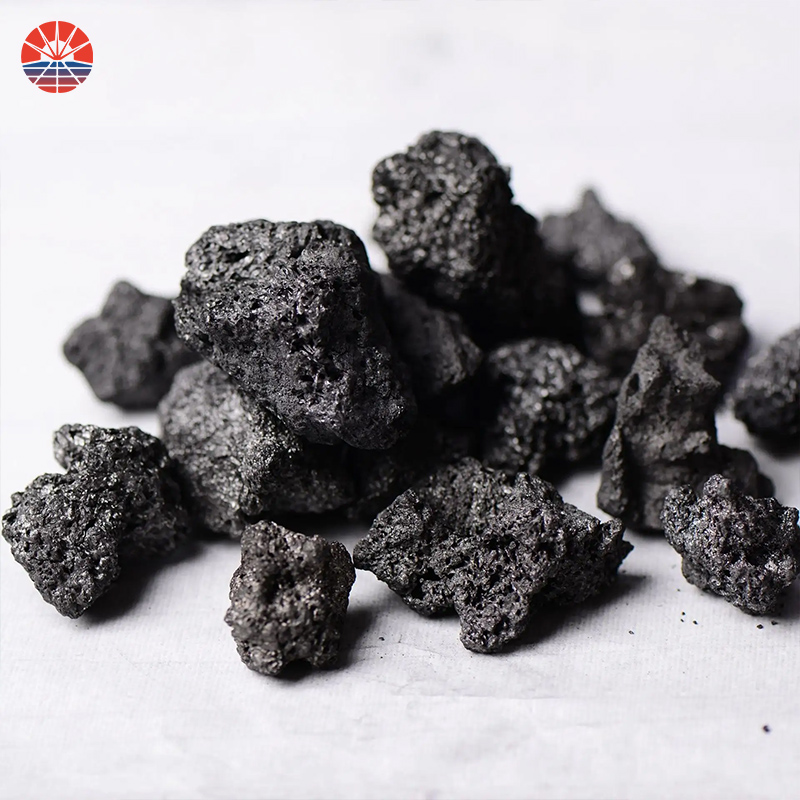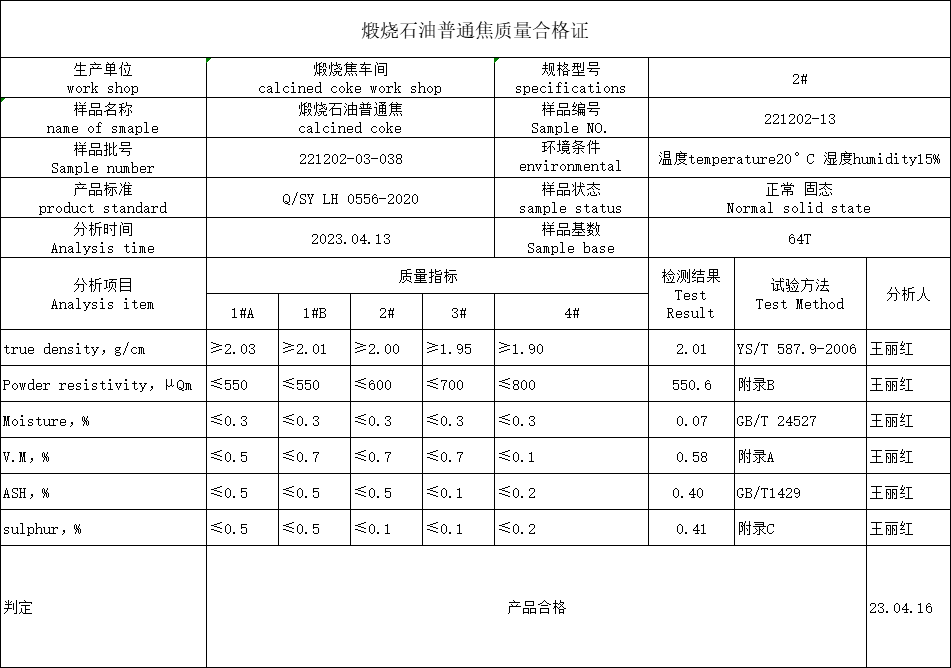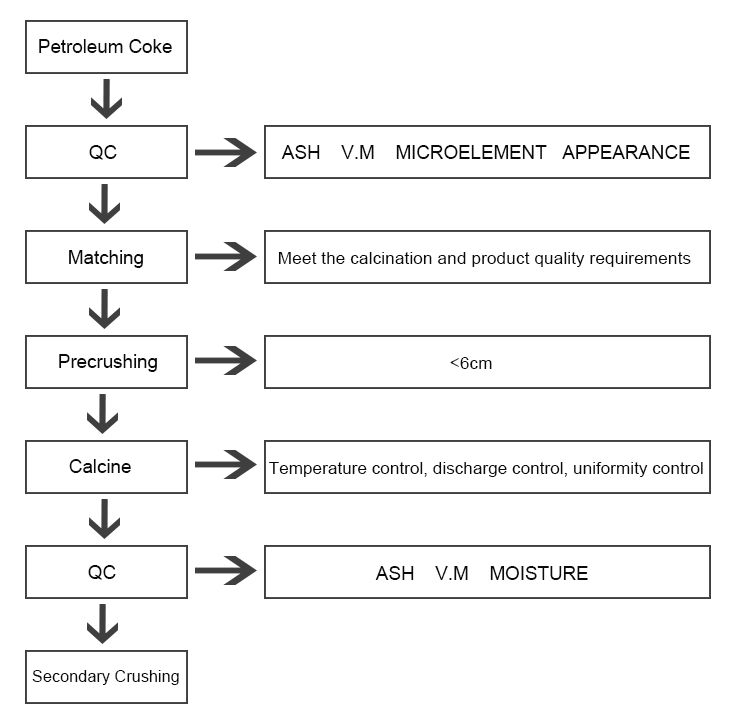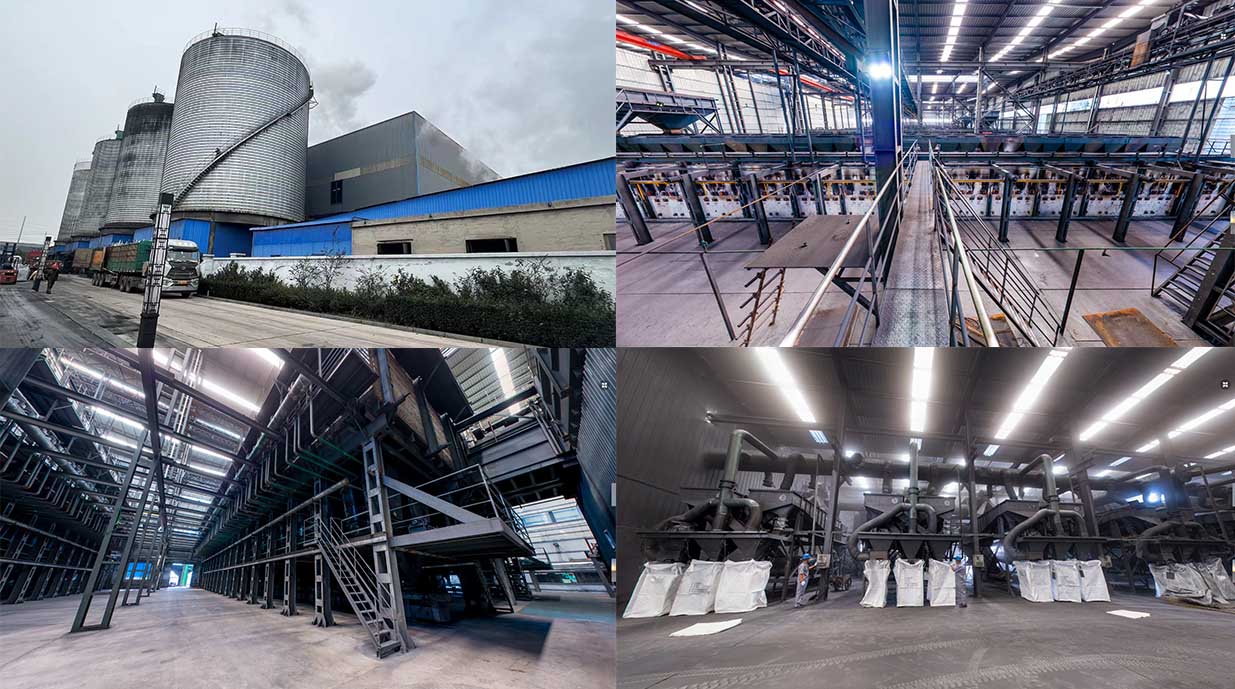Usage Of Calcined Coke
Calcined coke is also an essential raw material in the production of graphite electrodes. Graphite electrodes are crucial components used in electric arc furnaces (EAFs) and ladle furnaces for steelmaking. The benefits of using calcined coke in the production of graphite electrodes include:
High carbon content: Calcined coke has a high carbon content, typically above 99%. This high purity ensures that the resulting graphite electrodes have excellent electrical conductivity, making them highly effective in the steelmaking process.
Low impurity levels: Similar to its use in aluminum production, calcined coke used for graphite electrodes is carefully processed to have low impurity levels. This is vital because impurities can adversely affect the performance and mechanical properties of the graphite electrodes.
Superior electrical conductivity: The high carbon content and low impurities in calcined coke translate to graphite electrodes with superior electrical conductivity. This characteristic allows the electrodes to efficiently conduct electricity and generate the extremely high temperatures required for steelmaking in the electric arc furnace.
High mechanical strength: Graphite electrodes need to withstand the harsh conditions inside the electric arc furnace, including high temperatures and mechanical stresses. Calcined coke contributes to the high mechanical strength and structural integrity of the final graphite electrodes.
Low coefficient of thermal expansion: Calcined coke-derived graphite electrodes have a low coefficient of thermal expansion, which means they can withstand rapid temperature changes without cracking or deforming. This property is crucial during the heating and cooling cycles in the steelmaking process.
Good resistance to oxidation: Graphite electrodes must resist oxidation and chemical reactions with the molten steel and slag during steelmaking. The properties of calcined coke help create graphite electrodes with good resistance to such chemical reactions, leading to longer electrode life.
Cost-effectiveness: Using calcined coke as a raw material in graphite electrode production can result in cost savings due to its availability and relatively lower cost compared to alternative materials.
Consistent quality: As with its application in aluminum production, calcined coke ensures a consistent quality of graphite electrodes, which is vital for reliable and predictable performance during steelmaking operations.
In conclusion, the benefits of using calcined coke in the production of graphite electrodes include high carbon content, low impurity levels, superior electrical conductivity, mechanical strength, and resistance to oxidation. These properties collectively contribute to the efficiency, cost-effectiveness, and reliability of the steelmaking process in electric arc furnaces and ladle furnaces.
Advantage to using Calcined Petroleum Coke in graphite electrode
Carbon Content: Graphite electrodes are primarily composed of carbon, which provides electrical conductivity in the electric arc furnace. Calcined petroleum coke is a major component used in the production of graphite electrodes due to its high carbon content, typically ranging from 98% to 99.5%. The carbon content of CPC ensures the efficient conduction of electricity during the steelmaking process.
Electrical Conductivity: Calcined petroleum coke exhibits excellent electrical conductivity, which is a critical property for graphite electrodes. When the electric arc is established between the electrode and the metal being melted in the furnace, the high electrical conductivity of CPC allows for the passage of a large electric current through the electrode. This current generates the heat needed for the steelmaking process.
Thermal Resistance: Graphite electrodes must withstand extreme temperatures in electric arc furnaces. Calcined petroleum coke, with its high carbon content and unique graphite structure, offers excellent thermal resistance properties. It can endure the high temperatures generated in the furnace without significant degradation or deformation, ensuring a longer electrode lifespan.
Low Impurity Content: Impurities in graphite electrodes can adversely affect their performance and durability. Calcined petroleum coke, with its low impurity content achieved through the calcination process, provides a high-purity carbon source for graphite electrode production. Low levels of impurities, such as sulfur and metals, help minimize the risk of electrode breakage, improve electrical conductivity, and reduce undesirable reactions during steelmaking.
Mechanical Strength: Graphite electrodes require sufficient mechanical strength to withstand the physical stresses encountered in electric arc furnaces. The calcination process enhances the mechanical properties of petroleum coke, resulting in a more robust and durable material. This improved mechanical strength allows the graphite electrodes to withstand the mechanical and thermal shocks, vibrations, and other operational demands in the steelmaking process.
In summary, calcined petroleum coke is a vital component in the production of graphite electrodes. It provides high carbon content, excellent electrical conductivity, thermal resistance, low impurity levels, and mechanical strength necessary for the efficient and reliable performance of graphite electrodes in electric arc furnaces.










